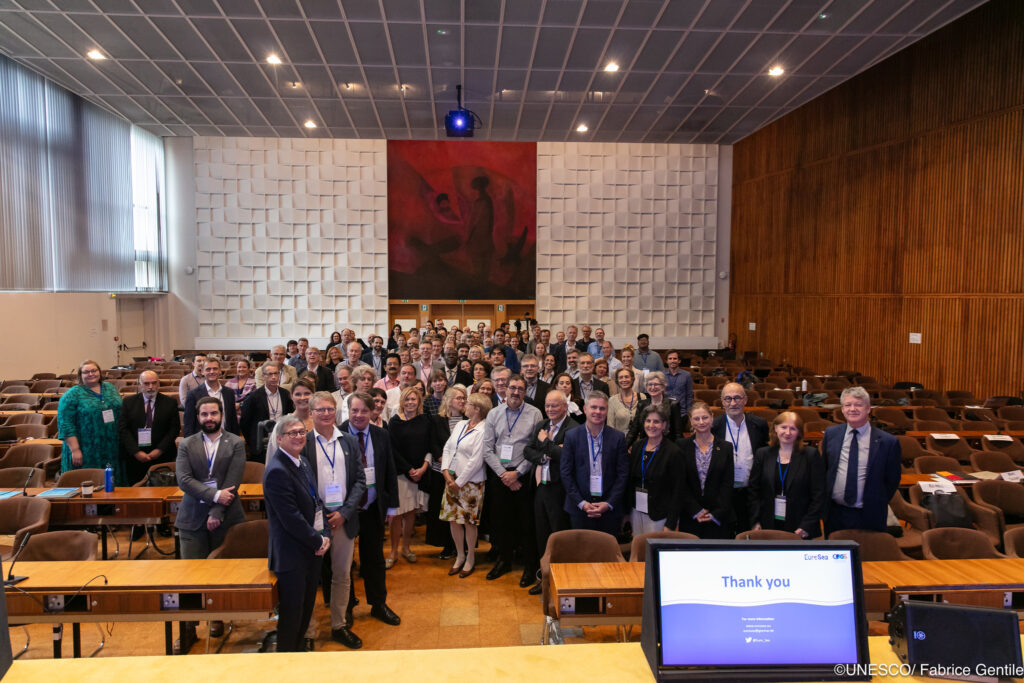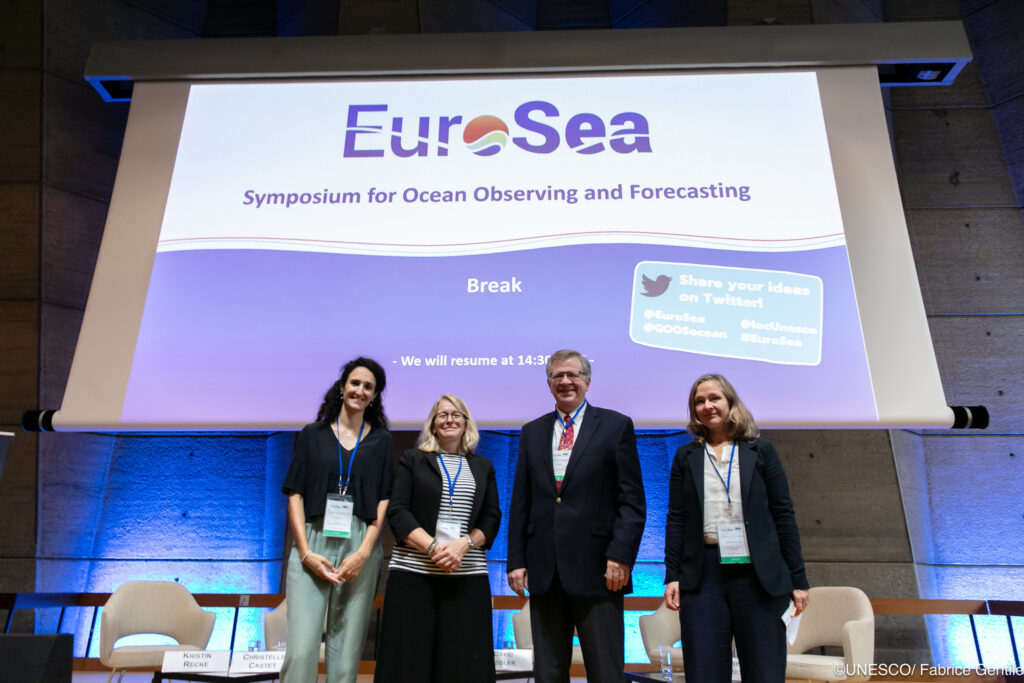On 19-21 September 2023, the headquarters of UNESCO’s Intergovernmental Oceanographic Commission (IOC) in Paris hosted the EuroSea Final General Assembly and the EuroSea Symposium on Ocean Observing and Forecasting. Both events brought together policymakers, scientists, and industry leaders to present the achievements of the EuroSea project and foster discussions on a sustainable system for Ocean observation and forecasting, as well as formulate a unified approach to oceanic research and forecasting. The symposium concluded with a joint pledge to strengthen the system in a sustainable way. Mercator Ocean International (MOi) is a key partner of the EuroSea project and was represented by eminent speakers in attendance.
EuroSea is an EU-funded project implemented by a consortium of 55 partners committed to achieving a user-focused, interdisciplinary, and responsive European Ocean Observing and Forecasting System in a global context. The project is organised around 8 thematic Work Packages (WP), with each tasked to fulfill specific objectives. MOi, with Pierre-Yves Le Traon, has co-led the WP on data integration, assimilation & forecasting (WP4), and Karina von Schuckmann has co-led the WP on demonstrations for Ocean climate indicators (WP7). MOi also participated in the Ocean observing system design (WP2).
The strengthening of the European Ocean observing value chain championed by EuroSea would further advance knowledge of the marine environment and its vulnerability to human impacts. The project places particular emphasis on knowledge transfer, data integration and data sharing as well as advocacy actions and innovation to improve predictions on the changes and impacts from climate change.
Three days of presentations and discussions
The partners of the project, together with policymakers, scientists and industry leaders, convened for 3 days of discussions and presentations at the EuroSea Final General Assembly on 19 and 20 September, followed by the EuroSea Symposium on Ocean Observing and Forecasting on 21 September. Both events were hosted by UNESCO’s Intergovernmental Oceanographic Commission (IOC) headquarters in Paris. During the EuroSea Final General Assembly, MOi’s Romain Escudier and other EuroSea partners presented a poster on the benefit of assimilating repetitive glider lines in different regional systems. Work carried out by Romain Escudier, Alexandre Mignot (MOi) and Florent Gasparin was the focus of the presentations by Elisabeth Remy on evaluation experiments of the impact of present and future physical and BGC in situ observations in our global and regional Iberia-Biscay-Irish (IBI) sytems. One of the afternoon sessions also featured a presentation on the regionalisation of Ocean indicators by MOi’s Mathilde Cancet and Karina von Schuckmann .
Playing a central role in the execution of the project, Karina von Schuckmann, Oceanographer expert in the Ocean climate nexus, addressed the audience with a key-note speech at the first roundtable of the Symposium titled “The Ocean in the climate system – extremes, hazards, and potentials”. P.Y. Le Traon participated to the final round table to highlight the critical role of observations for the Copernicus Marine and the need to structure a European Ocean Observing System (EOOS). The Symposium concluded with the signature of a joint Declaration on Ocean Observing and Forecasting by the Ocean experts and stakeholders assembled, where they committed to “support a concerted effort to strengthen the European Ocean Observing and Forecasting System in a sustainable way to fit the growing demand of European society and policies and underpin the European Green Deal and the EU Mission Restore the Ocean and Waters by 2030.”

EuroSea and the international Ocean commitments
The EuroSea project is funded through the European Union’s Horizon 2020 research and innovation programme under a call supporting the G7 Future of Seas and Oceans Flagship Initiative.
The work of EuroSea and its partners actively contributes to the European Green Deal, the EU Mission Restore the Ocean and Waters by 2030 and the Sustainable Development Goal 14: Life Below Water to “Conserve and sustainably use the oceans, seas and marine resources for sustainable development”.
Additional resources
- For more information on the project, visit eurosea.eu
- Access the EuroSea Declaration here.

